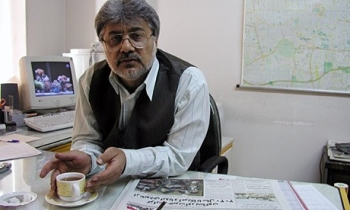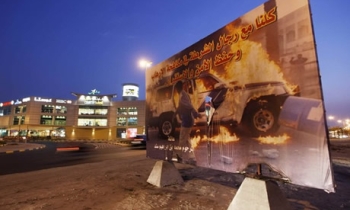The media across the United States are celebrating Sunshine Week with all smiles. This is because of the freedom of information, which is entrenched in the Constitution of the United States.
However, the picture in Africa remains somber and bleak for journalists and independent media. The reporters from the continent have nothing to celebrate.
Several decades after most African governments attained their independence, the press remains the biggest enemy of the executive. Reporters operate at the mercy of corrupt and kleptomaniac regimes that have no regard for the freedom of information. This defeats the very logical foundation of independence.
Most governments retained colonial laws, which they now use to oppress the media. The republic of Kenya in eastern Africa is one good example.
The government has used the State Secrets Act, a legacy of its colonial past, as an effective weapon to withhold information and to hide economic crimes involving powerful individuals in government.
Last week, a Kenyan court jailed for one year an independent journalist on criminal defamation charges. The court further ordered the journalist, Mburu Muchoki, to pay $7,200 to a Cabinet minister. He was punished for a story published four years ago that implicated the Cabinet member in a scandal.
The attorney general of Kenya a few years ago pledged that the law pertaining to criminal defamation was a colonial relic and that his office had ordered it removed from the statutes.
Yet, I was the first journalist in post-independence Kenya to face criminal defamation twice.
Later, the attorney general said the criminal defamation law was unconstitutional. However, this is the same law under which Muchoki was convicted last week.
The media in Kenya remain constantly under threat from the government. The attorney general and parliament have repeatedly threatened to enact laws to muzzle the media.
Kenya is not alone. This month alone, more than 15 journalists have been sent to jail in various countries in Africa. Their crimes? Informing the public.
According to the Committee to Protect Journalists, several journalists were jailed in Africa for between one to 2½ years in the past four weeks. They have also been ordered to pay heavy penalties. Some news organizations have been banned.
Somaliland, Kenya, Togo, Liberia, Gabon, Ivory Coast and the Congo are governments that have targeted reporters in the recent past, according to the Committee to Protect Journalists.
In Liberia, a weekly publication, The Independent, was banned for publishing a picture that the government considered as portraying a former Cabinet minister in an amorous position with two women.
In Gabon, a bimonthly publication faced a three-month suspension for publishing a story critical of President Omar Bongo. In Togo, a radio commentator was banned for a commentary that was perceived as critical of a Cabinet minister.
In Ivory Coast, four journalists were charged with publishing reports that “annoyed” President Laurent Gbagbo, and three journalists from the Congo were jailed for six months for allegedly defaming local government treasury officials. The three were also ordered to pay a penalty of $10,000.
From these cases, it can clearly be demonstrated that most African governments are intolerant to the free flow of information. Those in authority misuse the judiciary to silence the media.
There is a need for those in the United States to lobby their government to mount pressure on African governments to embrace freedom of information as a fundamental right of the people of Africa.
Peter Makori wrote for The Kansas City Star last year while on an international reporting fellowship. Since receiving political asylum in January, he has been attending the University of Missouri-Columbia.









